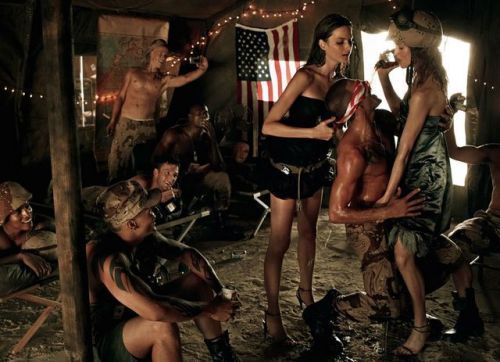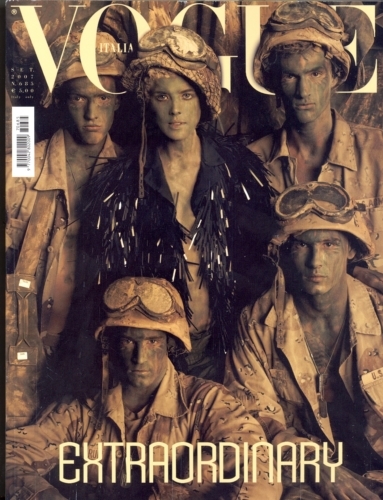Uncommon Bestiary
Matteo Pasquinelli's book, Animal Spirits: A Bestiary of the Commons, asks us to get real about the dark, libidinal desires and living labour that underlie the 'multitude' and the commons. Review by Luciana Parisi
After the political delirium of postmodern times, this new century has seen a return to clear anti-capitalist positions reacting against the deterritorialisation of political thought. Leaving behind the ephemeral desert of the real, many have argued that political ideas must now be realised. Most recently, the crisis of value within the machine of capitalism has become yet another warning against those philosophies that offer a ‘shameful apology to capitalism'. A call to reactivate the historical specificity of the political animal is now pitting itself against cognitive capitalism's affective, creative and intellectual models of real subsumption.
During the '90s, the explosion of free software, open source and social network culture became the opportunity for a collective politics to declare autonomy from centralised media control. In the early '00s, a widespread sentiment of disillusionment towards the autonomy of such soft culture readily denounced the babble of creative capitalism. Already in the 1970s, Italian Operaismo had unveiled the emerging symptoms of such an extended ‘social factory'. The full capitalisation of Free Culture, however, has been realised by a computational meta-architecture governing everyday communication and penetrating every aspect of social relations. This is why it is now considered naïve to maintain that concepts, affects and sensations could ever remain subversive uncharted territories from the new form of communication, cognitive or immaterial capitalism. In this climate, given that all thoughts and affects are either believed to be always already (neoliberally) free or co-opted by the ingenious form of post-Fordist capitalism, the articulation of a new sense of the common has been a project shared by many radical voices.
Matteo Pasquinelli's Animal Spirits: A Bestiary of the Commons offers us one of these articulations, which argues that a commons can only be constructed if the multitude's animal instincts are ultimately confronted. Right from the start, this book indirectly acts as a counterpoint against those crystallisations of radical politics which intentionally reject any infection with economics, aesthetics and, above all, desire. The spectre of a naturalised capitalism haunts such new politically-oriented intelligence, which insists on divorcing politics from desire, and capitalism from libido.i Pasquinelli's idea of the common is, by contrast, unafraid of the murky territories of political economy, claiming, instead, that if a new common is to come the wicked nature of the political animal needs to be embraced. Of course, one cannot deny that even dark energy is now shaped in desirable commodities and Pasquinelli shows us how this happens in warporn and net porn. The book however goes even further and argues that there is a parasitic alliance between capitalism and the evils of the political animal on the one hand, and between animal spirits and the commons on the other. It is precisely this double parasitism that makes this book an interesting counter-argument in the current climate of political discourse.

Image: Italian Vogue photoshoot, 'Make Love Not War', 2007
In particular, Pasquinelli denounces those current debates about the digital commons that are infused with rhetorics of freedom of expression and creativity, non-centralised collaboration and clear political action. This naïve enthusiasm for digital commons is said to completely miss the point that behind the computational architecture of social networks there is a living body, and living labour. If a common is to be realised, according to Pasquinelli, one has to untie digital codifications from the physical plane of energies that work beneath it. Despite the tone, this is not simply a return to the embodiment versus digital immateriality dichotomy. On the contrary, Pasquinelli wishes that the politics of the common could return to the primordial or bestiary spirits haunting the political animal. In sum, if the immaterial, abstract or symbolic construction of a digital commons always already works to sustain cognitive capitalism, then the neo-political animal should retaliate through the energetics of the bestiary.
Pasquinelli's argument, however, is more specific than that. His vision of an unleashed bestiary of the multitude transposes onto the plane of digital culture Paolo Virno's claim that politics cannot be divorced from evil nature. In particular, he argues that the Free Culture movement - from free software to creative commons and their artistic use - exemplifies the belief in the natural goodness of the human being. The slogan ‘information is non-rival' is the exact symptom of this idealistic belief. Pasquinelli does not spare anyone: in Free Culture rivalry is everywhere. Immaterial conflict is the norm between intellectual workers. This conflict includes the economy of references, the race to meet deadlines, the competition for festival selection and between festivals, and ‘the envious and suspicious attitudes amongst activists' (p.49). This immaterial civil war is extended to technological, economic and cultural spheres, which are ultimately biomorphic extensions of the natural aggressiveness of the human animal.
Pasquinelli's argument that there is a continuation of natural aggression over into cultural, technological and economic spheres is positively ambitious. It ranges from unveiling the corporate parasite of the digital commons, the rampant gentrification behind creative cities such as Berlin and Barcelona, to the libidinal economy governing the mediascape of war pornography. Virno, together with Agamben, Bataille and Ballard are constantly invoked to sustain the thesis that beneath the immaterial world there is a libidinal beast of instinctual impulses that cannot be escaped. The natural state of evil cannot be left behind. On the contrary, it has returned with an increased aggressiveness under immaterial capitalism in the form of the creative industries and free culture.
However, Pasquinelli's insistence on this extension of the state of evil is directed not to the destruction of politics, but to the construction of a common, which could recognise, postpone and retain its animal spirit. Nevertheless, Pasquinelli does not urge us to take refuge in the bestiary; he is, indeed, well aware that immaterial capitalism is ready to put to work the darkest sides of the human. Similarly, Pasquinelli is not rushing to propose that capitalism ultimately embodies the energetic logic of the ‘parasite parasiting the parasite'. Instead, whilst he maintains that capitalism remains a symbolic, immaterial and cognitive appropriation of living labour, he also implies that capitalism is an evil parasite.

Image: Georgian soldier lying dead in South Ossetia, 2008
The book is pregnant with powerful arguments, but there are some undercurrents that can be detected here. For instance, in his critique of the digital common, Pasquinelli attacks what he names the ‘code fetishism' of digital culture, which universalises software as the political model, without acknowledging the energetics of labour. Despite his good intentions, this is where Pasquinelli's book is less convincing. His attack on code culture overlooks one of its essential objects: reversing the code from within the representational model of the symbolic to show that there is a reality of abstraction, which is itself energetic. Pasquinelli's critique of software culture also ignores this culture's many attempts to challenge the status of codes as axioms or formal, symbolic rules in order to reveal their parasitic and viral nature. Codes are not simply binary systems of simulations that hide living conditions of existence. Codes are real abstractions that have an energetics equivalent to flesh and blood despite remaining utterly irreducible to any physical system. Pasquinelli's insistence on the meta-structure of coding and the under-structure of living labour ultimately overlooks the materiality of code. Furthermore, by taking code culture at its face value, he ignores the weird and prolific underworld of esoteric software cultures.
Pasquinelli argues that code culture (and hacker culture in particular) mainly complies with the dominant system of capitalist abstraction because it hides the real conflict of living labour. However, it is not necessarily that coding is too abstract to expose the new conditions of exploitation, but that Pasquinelli's conception of software is not abstract enough to grasp how the energetics of contemporary culture and power are running against each other through coding. Pasquinelli's view of coding unfortunately misses the point that there is an energetics of the incorporeal, a residual parasite or virulence within coding itself. Pasquinelli's attack, therefore, on code culture seems to me redundant because it overlooks the radical attempts within this culture to harness the materiality of the code. It is not news that surplus value is at the core of any coding system, including biological, cultural, aesthetic and political realms. Similarly, to argue that such surplus is outside the code, in the living body, is to dismiss the interior exteriority of topological systems of power. Here the extraction of surplus, in the form of abstract, speculative, pre-individual values, (such the germinal potentialities of codes to be modified and to become generative of models of governance), is central to the current operations of capitalism. Putting aside these comments, one might nevertheless still sympathise with Pasquinelli's critique of coding because it is specifically tailored to those views of the digital commons that disregard the parasitic complicity between free labour and cognitive capital.
Pasquinelli's intervention is indeed more powerful when he insists that the acclaimed force of the multitude has a dark side, which cannot be simply eliminated by good intentions. The extensive debates about the contemporary workings of biopolitics are here freshly transformed into a discussion about the darker continent of ‘zoopolitics'.ii As Pasquinelli claims: ‘not the power over the bios, but the zoe behind politics itself' (p.33). For Agamben, bios refers to qualitative life, how one lives in the world; the rational of the rational-animal, the political. Zoe, by contrast, is bare life, which is the embodied subject of law, punishment, discipline, education, training and employment. Thus, for Pasquinelli, there is no symbolic order without the body, there is no culture or politics without the impulses of instinctual drives. It is for this reason that the multitude is an ambivalent political form, which should be called a ‘demoncracy' instead of democracy (pp.33-4). Pasquinelli's argument that the aggressive nature of man is internal to the multitude is an almost necessary warning against any overly idealistic investment in the goodness of the newfound political subject. While contesting the naturalisation of capitalism, Pasquinelli also avoids a return to the good nature of politics. In this proposition, presumed to be beyond good and evil, however, Pasquinell's thesis may still be at considerable risk of naturalising politics.

Image: Italian Vogue cover, 2007
This is the warning label attached to Virno's recent writings, and a danger that Pasquinelli seems to overlook. Like Virno, Pasquinelli proposes that the self-destructive drives of the linguistic animal can be controlled and restrained only by the ‘institution' of the multitude. This means not simply redeeming the good from the evil, but retaining the human malaise of the evil through continual deferral (p.36). For Pasquinelli, such deferral becomes the source of a new practice of sabotage that guarantees political autonomy to the commons.
Far from repudiating the alliance between politics and economics, Pasquinelli starts from the assumption that creativity is ‘my value, my conflict'. Drawing on Marazzi's argument that ‘rent is the new profit', Pasquinelli suggests that there is a surplus of energy extracted through new monopolies applied to material infrastructures (p.67). For instance, Pasquinelli explains how file sharing over the internet has effected a decrease in sales of the ‘music medium itself (the compact disc), but at the same time it has sustained a new generation of personal media like MP3 players and iPods' (p.67). Hence, a surplus of living energy - a biochemical buzz - lies behind the digital media culture of abstraction. It is then necessary, according to Pasquinelli, to design a new economic model of the social factory. He calls such a new economic institution, which guarantees value to the multitude, ‘social industries'. This idea is concerned not with the exploitation of intellectual property, but is a proposition for an economy of material and productive commons (p.146).
As opposed to copyleft ? fundamentally only a false alternative to the regime of copyright on which rent's immaterial and anonymous form is based ? one example of how the social factory could work is Dmytri Kleiner's copyfarleft licence. This example clarifies Pasquinelli's notion of a material and productive commons, which entails the fundamental recognition of class divisions and allows workers to reclaim the means of production. In brief, Kleiner proposes that copyfarleft products are to be free, but can be used to make money only by those who do not exploit wage labour by insisting that workers own their means of production. (Of course the hypothesis that the means of production could or may want to own themselves, or the question of whether the means of production are exploited, is not envisioned as a problem of the system of exploitation here!) It is here that Pasquinelli proposes the sabotage of the symbolic value of accumulation as the only possible gesture through which new commons can be built and defended (p.104). His idea, rather reminiscent of Baudrillard despite it all, is that by dethroning the acquired symbolic value of accumulation you undermine capitalism's real exploitative power. Drawing on Negri, Pasquinelli conceives of sabotage as self-valorisation in the process of creative destruction, which becomes effective only when it obtains material outcomes. Pasquinelli's re-articulation of sabotage aims to go beyond the popularised practices of over-identification exemplified in the pranks and tactics of the BAVO collective and the Yes Men for instance. These practices are here dismissed as the mere expression of ‘media activism', otherwise considered the ‘PR campaign of the anti-globalist movement'. Pasquinelli instead invites activists to look deeper into the economic asymmetries of cognitive capitalism. Indeed, productive sabotage implies ‘not imaginaries of riot but riots of imaginary to reduce prices and to make specific urban areas unfriendly to capital colonisation' (p.151). Echoing Negri's proposal of the metropolitan strike, sabotage will be effective if it brings the entire life of the city to a standstill.
Another example of productive sabotage, according to Pasquinelli, is the fall in share values on the stock exchange due to unexpected, external circumstances or market speculation. ‘[I]f there is no longer an outside there must be a sort of internal sabotage' (p.151). But how this internal logic of sabotage would have worked in this particular instance we are not told. In addition, one may wonder if the fall of share values and the extended crisis of the credit crunch is ultimately a form of sabotage or a further harnessing of the ‘laminar flow' (the meta-apparatus of state capitalism's smooth, ubiquitous, connection) which, as Deleuze and Guattari already predicted, increasingly corresponds to planetary reterritorialisation. In other words, once the evil nature of the multitude is recognised and its aggressiveness is seen to extend throughout culture, economics, and politics, then it seems ineffective to appeal to the internal contradictions of this nature to realise sabotage. To invoke self-valorisation amidst a process of creative destruction, which has to have material outcomes, is to remain locked within the pincer of deterritorialisation and reterritorialisation, for which sabotage is the perfect mechanism.

Image: Death in Fallujah, 2004
Once the extended, biomorphic apparatus of evil is confronted, what is needed is not simply a continual deferral of the animal spirits by conserving its zoological essence. It is not a self-valorisation against capitalist deterritorialisation that is needed. At the end of the day, the zoological bestiary is ontologically constitutive of the political animal, as Agamben explains. One might further suggest that it is precisely the political animal's reality today. Only a veritable third parasitical proposition (as the book itself attempts to articulate drawing on Michel Serres) can help to expose and cut through this double bind of controlling and becoming animal. This double bind is fully manifested by the bestiary spirit of creative capitalism and needs to be cut right through the middle beyond the horizon of possible claims. Paradoxically, it can be suggested here that what is needed to break open this pincer is a realisation of a destratified, male libido, which has entered a state of heat-death, where there is no free energy to do the work and to guarantee the dominion of the species bio-logical reproduction. In other words, Pasquinelli overlooks those unexpected tendencies and anomalies within the male model of libidinal power when there is no energy to exchange or do the work, when there is an entropic intensity, which disables any bio-logic of reproduction.
To clarify this point, it may be worth addressing the last part of Pasquinelli's book, where he discusses warporn, the libidinal content of war imagery. Inspired by Ballard's ‘ancestral instincts of media', Franco Berardi's ‘pathologies of hyper expressivity' and Lovink's ‘nihilist impulse', Pasquinelli develops an original analysis of internet pornography vis a vis warpunk. If warporn is the ultimate commodity, the objectification of the animal spirit under capitalism, warpunk is the obverse of those uses of war imagery deployed to make the case for the legitimate, defensive use of weapons (p.199). One example here is Chris Korda's ‘I Like to Watch' video, where porn scenes of oral sex are mixed with 9/11 and football match images. To the pornographic images of war indirectly corresponds warpunk's bomb imagery. Despite being a potentially interesting example, how this warpunk strategy achieves more than the BAVO collective or the Yes Men's politics of overidentification is only vaguely graspable here and does not seem to get far enough away from the pre-set double bind of control and becoming. But Pasquinelli's insistence on the pornification of our collective imagery aims at exposing the surplus of libido (= energy) condensed in networks of media and humans, innervated with perverted, contradictory and obscure feelings, which animate the dark sides of Negri and Hardt's multitude. Ultimately Pasquinelli's book offers to the political formulation of the multitude a chance to confront its own animal nature so that a veritable common could be positively constructed out of the constant presence of such libidinal evil. Such evil is also the motor of pornographic desire, and net porn is the ultimate example of the libidinal accumulation of surplus and animal instincts. These are today the basis for the extraction of surplus value, ultimately supported ‘mainly by the flows of male libido'.
Whilst reading this book, one is inclined not to contest that there is a parasitic alliance between the male libido and capitalism. Yet many may doubt the nuance of this thesis when compared with existing critiques of the alluring and feminine power of capitalism. The affective activities of capitalisation and, in general, the negentropic energetics incorporated by the body of the new economy, expose how the camouflage of the sexes and the morphing of masculine and feminine appetites are instead dominant in today's fields of technology and culture. In conclusion, the book's initial promise to take us deeper into the murky waters of the political animal appears not to take us very far from the familiar shores of patriarchal memory. The political animal remains obsessed with the limits and excesses of his own double-bind libido, (which remains a trap or false alternative between the becoming animal of politics and the controlling animal of capitalism), consistently excluding the reality of any machinic desire or abstract sex, and the potentiality for constructing a common that is destratified from male pleasure.
Luciana Parisi <L.Parisi AT gold.ac.uk> is the Convener of the Interactive Media MA at Goldsmiths, University of London. In 2004 she published Abstract Sex. Philosophy, Biotechnology and the Mutations of Desire, Continuum Press. Currently she is writing a monograph on soft architecture and the metaphysics of computational culture for MIT
Info
Matteo Pasquinelli, Animal Spirits: A Bestiary of the Commons, NAi Publishers, Rotterdam and the Institute of Network Cultures, Amsterdam, 2008
Footnotes
i Historical materialism, for instance, has classically rejected any form of naturalisation of capitalism. Contemporary factions of historical materialism have particularly rejected the libidinal critique of capitalism because it identifies capitalism with a biological organism equipped with impulses, instincts of life and death or libido.
ii The notion of bare life is derived from Giorgio Agamben's argument that the biological constitution of life has always been power's object, working to reduce politics to the bare condition of animal survival. Pasquinelli adopts Agamben's notion of bare life - life without quality - to highlight how at the core of politics there is an animal spirit and a bestiary that cannot be suppressed.
Mute Books Orders
For Mute Books distribution contact Anagram Books
contact@anagrambooks.com
For online purchases visit anagrambooks.com






